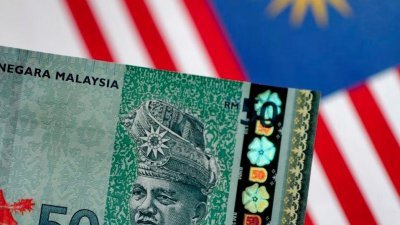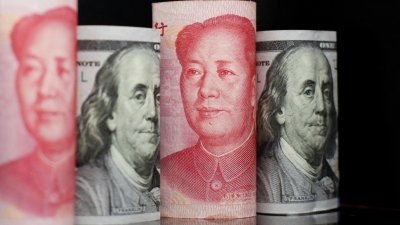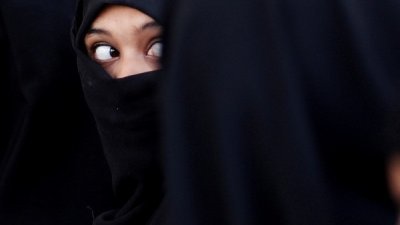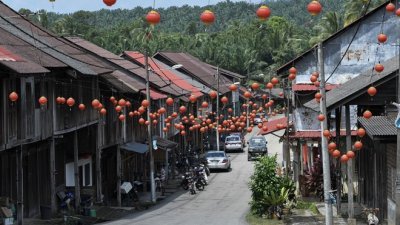即将召开的土著经济大会可能与以往有所不同。其有可能成为马来西亚政治经济和社会结构的转折点。
这场将于2月29日至3月2日举行的2024年土著经济大会,预计出席者超过3000人,特别是来自马来人、卡达山杜顺人、达雅人、伊班人和原住民的参与者。
今年的大会史无前例的是,邀请华人和印裔商会出席,这包括马来西亚中华总商会(中总)。
首相安华在中总农历新年庆祝活动上发出这项邀请时指出,政府会以更具包容开放方式,解决土著经济问题,这也将有助于解决影响其他社群的问题。
“我希望中总准备好讨论(此类问题),因为更具包容的方式意味著,在讨论土著经济问题时,也会一起讨论涉及中小型企业或印裔社群的穷人问题。”
大会将重点关注10个主要领域,包括教育和人力资本改革、加强清真产业、沙巴和砂拉越的土著经济以及新科技。大多数(如果不是全部)这些主题已经成为无数论坛的焦点。那么这次大会还会有什么新观点吗?
大会能否开辟新天地
目前还不清楚,长期以来关注的课题,如有关土著政策带来的影响,这些政策是否符合国家的最大利益,谁是赢家,谁是输家,以及一系列之前被认为政治不正确或禁忌的课题,是否为大会公开讨论的课题之一。
令人鼓舞的是,公正党巴西古当国会议员哈山卡林开出了第一枪,呼吁即将召开的土著大会检讨土著特权是否真正使土著受益,并确保土著大会更加透明、坦诚和不受限制的对话与交流。
他提问到:“土著特权否真正帮助了土著经济,还是被半岛、沙巴和砂拉越的少数土著精英所运用和操纵,以让自己、家人、朋友和朋党资本家致富? ”
联邦宪法第153条文经常被引用来佐证土著政策的合理性。该条款指出,国家元首有责任维护马来人、沙巴和砂拉越原住民的“特殊地位”,这包括在教育、奖学金、公共服务职位的固打配额,以及商业准证或执照的给予。
无论如何,第153条文也阐明,国家元首有责任维护“其他族群的合法利益”。
宪法条文是否能再合理化土著特权的延续,是一个需要讨论和解决的问题,尤其国家已成立了60多年,而有关特权条款最初的意图是实施20年,直到其已不合时为止。
哈山卡林挑战与梦想
同样史无前例且更重要的是,哈山卡林也许追随著安华的步伐,提议大会不仅应检讨土著特权,还应检讨基于种族概念的政策。
“现在是否是时候让安华所谓的包容开放土著经济大会,去讨论并总结,人民的经济发展课题,不应通过种族政策或土著与非土著的划分来解决,而应基于人们生活水平和需求的阶级来划分?”
“例如,一些被称为T10群体的上层阶级,包括所有种族,有土著和非土著。他们中的一些人是超级富豪,或者属于亿万富翁或千万富翁群体。”
“而较低阶层的B60也含盖所有族群。如果我们去了解赤贫一群,我们就会知道这里不仅有贫穷的土著,还有许多贫穷的印度人和原住民。”
哈山卡林呼吁,如果土著大会要具有包容性,那么大会的重点应放在B60群体(即大多数马来西亚人)身上。
他认为,所有种族和宗教的人都需要有合理收入的工作、可控的生活成本、良好的医疗服务、优质教育,以及能为有需要老年人提供的社会安全网,这不仅是无可辩驳的。这是大多数马来西亚民众以及反对派都会同意的观点。
如他所说:“因此,一场成功的土著经济大会将为所有人,不论种族,制定一个公正的经济政策,最终,为所有人带来社会正义。”
“跨种族的经济和社会正义将在人们之间建立信任和信心,让人们相信现任政府及昌明理念,正走在正轨上,以创建一个团结的马来西亚。”
哈山已向首相和希盟政府发出了挑战,要求重新调整和改变土著政策。而即将参与土著经济大会的非马来人,也将有机会成为变革的催化剂,改变过去许多人认为阻碍这国家真正迈向统一、具包容和凝聚力的障碍。
哈山卡林挑战说:“我们希望这将是最后一届土著经济大会。在此之后,我们可以新的方式办下一次经济大会—马来西亚人民经济大会。这个梦想能实现吗?”
林德宜《安华能否重塑土著议程?》原文:Can PMX Reinvent the Bumiputera Construct?
Coming shortly is an economic congress that may be different from those held in the past. It also has the potential to be a gamechanger in the political economy as well as the social structure of Malaysia.
This is the 2024 Bumiputera economic congress to be held from Feb 29 to March 2 and due to be attended by more than 3,000 participants, especially those from the Malay, Kadazandusun, Dayak, Iban and Orang Asli communities.
What is unprecedented in this year's congress is the proposed participation of the Chinese and Indian chambers of commerce, including the Associated Chinese Chambers of Commerce and Industry of Malaysia (ACCCIM).
Announcing this event at the ACCCIM Chinese New Year celebration, PMX Anwar Ibrahim noted that a more inclusive approach in addressing the Bumiputera economy would lead to resolving issues affecting other communities.
“I hope ACCCIM is ready to discuss (such issues) because a more inclusive approach means that, in talking about the Bumiputera economy, issues involving small and medium-sized enterprises or the poor among the Indian community will be addressed together.”
The congress will be focusing on 10 main clusters, including educational and human capital reforms, strengthening the halal industry, Sabah and Sarawak’s Bumiputera economy, and new technology. Most, if not all, of these subjects have already been the focus of innumerable fora. So will there be anything new?
Can the Congress Break New Ground for Madani Islam
It is not clear if long standing issues and concerns about the actual impact of Bumiputera policies, whether these policies have been in the best interest of the nation, who have been winners, who are the losers, and a host of related issues previously regarded as politically incorrect or taboo are going to be part of the official programme to be discussed openly.
It is encouraging that PKR Pasir Gudang Member of Parliament Hassan Abdul Karim has started the ball rolling to ensure a more transparent, frank and unrestricted discourse by urging the upcoming congress to review if the bumiputera privileges have actually benefited the community.
“Has it truly helped the bumiputera economy or has it been seized, manipulated by a few bumiputera elites in the peninsula and Sabah and Sarawak to enrich themselves, their families, close friends, and crony capitalists?” he asked.
Article 153 of the Federal Constitution has often been invoked to justify the pro Bumiputera policy. The provision states that the Yang di-Pertuan Agong is responsible for safeguarding the “special position” of the Malays and natives of Sabah and Sarawak, including through quotas for education, scholarships, public service positions, as well as licences and permits for businesses where necessary.
Article 153 also states that the king is responsible for safeguarding the “legitimate interests of other communities” in accordance with the article.
Does the constitutional article justify the continuation of bumiputera privilege is an issue which needs discussion and resolution now that the nation is more than 60 years old and the initial intent was for the special position clause to operate for a period of 20 years until its need was no longer justifiable.
MP Hassan’s Challenge and Dream
Just as unprecedented and more significant, MP Hassan, possibly following PMX Anwar’s lead, has proposed that the congress should not only review bumiputera privileges but also the notion of race-based policies.
“Is it time for the KEB (Kongres Ekonomi Bumiputra) which is inclusive according to Anwar, to discuss and conclude that the issue of economic development of the people should not be resolved with race-based policies or the division of bumiputera or non-bumiputera, but based on a class division of the people’s lives and needs?”
“A few upper classes called the T10 group, for instance, consist of all races, both bumiputera and non-bumiputera. Some of them are ultra-rich or from the billionaire or multi-millionaire group.”
“While the lower class B60 consists of all races. If we study the hardcore poor, then we know there are not only poor bumiputera people but also many poor Indians and Orang Asli. ”
Hassan called for the focus of the congress to be on the B60 class - that is, the majority of Malaysians - if the congress is to be inclusive.
His assertion that people from all races and religions need jobs with reasonable incomes, manageable costs of living, good health services, quality education, as well as a safety net for the elderly in need is not only irrefutable. It is one which most members of the Malaysian public as well as the opposition will agree with.
In his words:
“So, a successful bumiputera economic congress will produce economically just policies for all people regardless of race, and of course, in the end, it will produce social justice for all.”
“Economic and social justice across races will create the trust and confidence among people that the current administration and its Madani philosophy are on the right track to create a united Malaysia.”
Hassan has thrown the gauntlet to PMX and the Pakatan government to recalibrate and transform the bumiputera policy.
Non Malay participants at the coming KEB will also have the opportunity to be catalysts for change in what many regard as possibly the most challenging obstacle to a truly unified, inclusive and cohesive nation.
Hassan’s challenge:“We hope it will be the last Bumiputera Economic Congress. After this, we can organise the next economic congress with a new brand - Malaysian Citizens Economic Congress. Can this dream be achieved?”
要看最快最熱資訊,請來Follow我們 《東方日報》WhatsApp Channel.


















